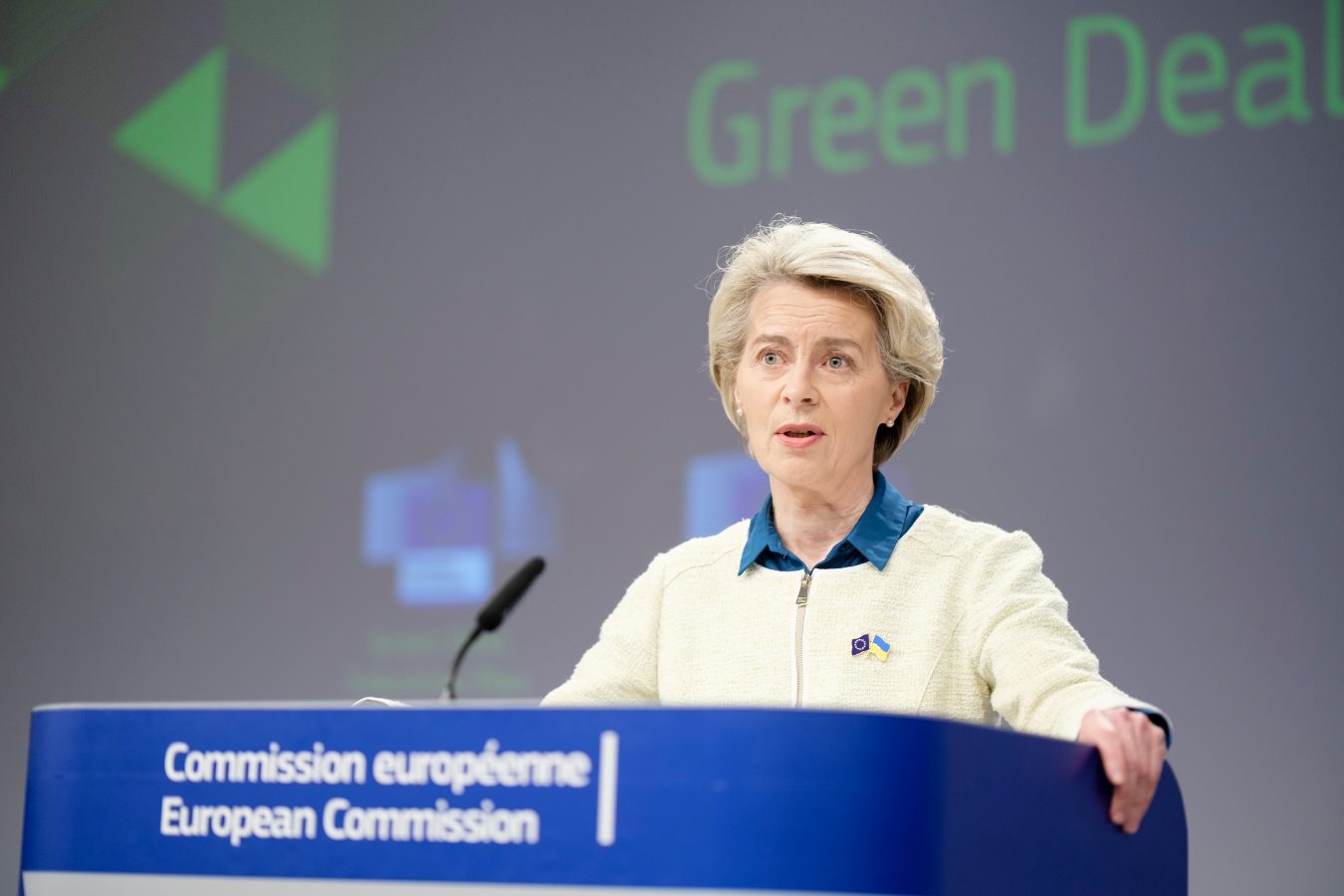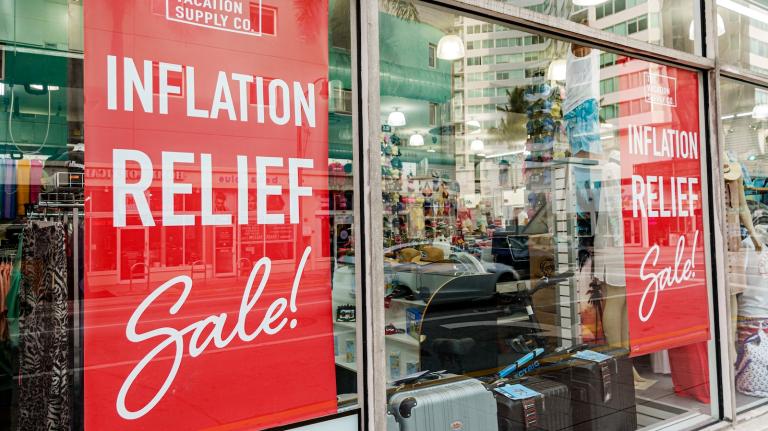The European Union will put more than $270 billion toward its own “green deal” in hopes of keeping competitive with the United States and China.
Many observers saw the move as a direct reaction to the Biden administration’s generous round of green subsidies, part of the Inflation Reduction Act.
European Commission president Ursula von der Leyen made the announcement Wednesday, calling the series of proposals The Green Deal Industrial Plan.
“We know that in the next years, the shape of the economy, the net-zero economy, and where it is located will be decided,” said von der Leyen in a news conference in Brussels. “And we want to be an important part of this net-zero industry that we need globally.”
The Green Deal Industrial Plan would, according to the European Commission, focus on simplifying regulation to help get proposed green projects running quicker, speeding up access to investment and funding, developing programs to train skilled workers in specific industries, and enhancing trade agreements in order to secure raw earth materials needed for the net-zero transition.
The plan would also help the EU reach its 2050 goal of carbon neutrality. That includes a progress check where member states would collectively cut their greenhouse gas emissions by 55 percent by 2030.
The Green Deal Industrial Plan was pushed quickly due to concerns by several EU leaders that the U.S. and China were putting protective measures in their own deals — in the form of tax breaks for domestic companies — that would disadvantage European car manufacturers and companies developing green technologies. The Biden Administration tax breaks, for example, support American companies that locally manufacture certain components of green technology.
EU critics also expressed concern that European companies might be tempted to take their operations over to the U.S. in order to take advantage of the tax breaks, thereby undermining the EU’s own status as a clean energy leader.
But some experts in Europe think those concerns are overblown.
“There’s nothing that Joe Biden and the US government, in my opinion, has done that’s going to see European jobs shifted to the United States,” Jacob Kirkegaard, a senior fellow at the German Marshall Fund in Brussels, told the German news organization DW. “We want the United States to embrace also the green transition. And we should be less concerned, quite frankly, that our own green transition is put at risk,” he added.
The Green Deal Industrial Plan, which has not yet been formalized, will nonetheless be debated by EU leaders at a meeting of EU heads of states and governments in Brussels next week.
The EU consists of 27 member states, ranging from highly populated and wealthy countries like Germany and France to less developed and resourced countries like Bulgaria and Romania. State aid rules have made it easier for EU governments to help support private companies financially in their countries. A key tenet of the Green Deal Industrial Plan would be to extend that support to companies that are involved in renewable technologies.
But wealthy countries like Germany and France are better positioned than other smaller and poorer member states to invest in their companies, which has led to controversy around the Green Deal Industrial Plan. Without some kind of measure to provide funding for states like Bulgaria, for example, to support companies operating within their borders, such member states may reject the EU’s plan during next week’s talks. In order for the proposed Green Deal Industrial Plan to move forward, all 27 national governments must give it their approval.



